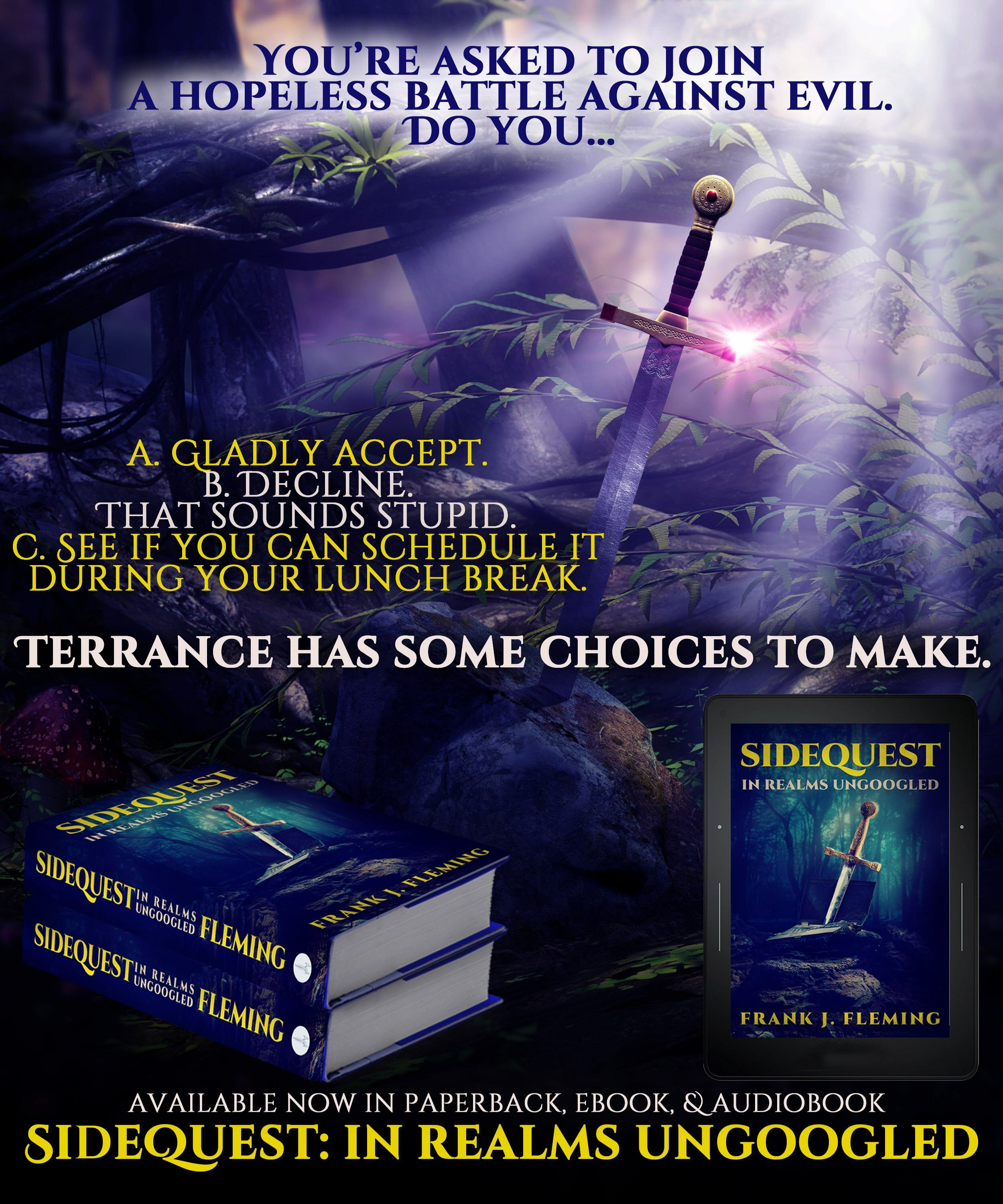For a decade, I and my fellow travelers worked within my country’s political system, trying to effect change. Then, one fateful day- October 19th, 2015- the 42nd Canadian federal election came to an end, and everything we’d worked for was wiped away.
Rather than go through the process of rebuilding a broken party again, I decided to work with Liberty Island managing editor Dave Swindle to create my own culture-influencing fantasy trilogy. But as I delved deeper into Canadian culture, I began to realize that I was starting from a very different cultural reference point. I couldn’t just blindly copy American tropes of soldiers of fortune, accidental prophets, badass bikers and even SJWs who end up entangled in the American political system.
When I read Liberty Island novels featuring these protagonists, I keep noticing differences that take me out of the story. It’s not hard to imagine other Canadians getting hung up on these differences, too.
Let’s use the example of Terrance Denby, the main character of Frank J. Fleming’s novel, Sidequest: In Realms Ungoogled. If you’ve ever read Sidequest, you might not notice anything “American” about him. Yet, as I read, these things popped out at me:
– Terrance starts off as a rather dweeby and nerdy character who develops over the course of the story to realize his true potential.
– Terrance finds a group of like-minded individuals who he comes to regard as his fellow travelers as he fights the Darkness.
– Terrance waffles for most of the novel, but finally chooses Good over Evil in what becomes a clearly defined and stark binary.
– There’s very little overt religious messaging in Sidequest, but it is there- in speeches where Terrance is told to look within and discover how powerful he is, and in scenes where he emerges from his trial and witnesses the natural and wondrous order to the universe.
Sidequest is a great novel. I loved its video game imagery and the weirdly oblivious way Terrance and his friends just go along with the transformed world. But all the while, I was reminded of the underground Canadian sensation that is Scott Pilgrim Vs. The World.
Created by graphic artist Brian Lee O’Malley, the winding, 8-bit inspired tale of the eponymous Canadian rocker-slacker and his quest to win the heart of the American-born, sub-space traversing Amazon delivery girl Ramona Flowers is chronicled in 6 high-energy volumes, one manic Edgar Wright-directed film, and one side-scrolling beat-em-up video game adaptation.
The first thing you’ll notice is that Scott is played by the famously unassuming and bland Michael Cera of Superbad fame. It’s a perfect casting choice for the famously unmovable Scott.
Enemies burst into Canadian coins and loud garage-band guitar chords assault the ear, but Scott remains levelheaded to the point of apathy throughout. When he confronts his dark side- the NegaScott- he simply rejects the temptation. A breakup with Ramona is temporary and merely sets up the final confrontation with American final boss/record exec and club owner Gideon Graves, who is as lame of an antagonist as Scott is a protagonist. Portrayed by Jason Schwartzman, he’s manipulative, passive-aggressive, ostentatious in displaying his wealth (a BIG no-no in Canada) and merely sees Toronto as a place to expand his entertainment empire.
(Note the dichotomy between the two Americans here, representing the two sides of how America is seen by Canadians: The attractive, mysterious, and captivating Ramona contrasted with the dismissive, arrogant Gideon.)
Scott never trains or acquires new skills on his journey. We see him get beaten down by a few of Ramona’s Evil Exes, but most of the time he’s able to defeat them just by exerting a minimum of effort or through trickery. Scott starts out all-powerful and though he must acquire the Power of Love sword to defeat Gideon, he knows intuitively how to use it.
Importantly, Scott and his friends don’t share any ideology or common goal beyond winning a Battle of the Bands Tournament. They do side with Scott when he faces off against the Seven Evil Exes, but they mostly chide him for his actions, such as when he casually breaks the heart of his under-age girlfriend (!!) Knives Chau in his pursuit of Ramona. He’s mostly reliant on worrywart Stephen Stills, the “talent” of their band Sex Bob-Omb or his all-knowing “cool gay roommate” Wallace Wells. We never see the tournament bracket or more than a couple of battles, we never find out who wins the tournament.
This is the absolute state of Canadian popular entertainment. It’s nihilistic, treats relationships as disposable, and considers itself advanced beyond ideological conflict. And for me, it’s DEEPLY relatable. I’ve met more Scotts than I’d care to count, right down to the fascination with Asian women. But as I said: When seeking to change the culture, this is where I must start from, because otherwise I run the risk of coming off as a Gideon and alienating the very people who I seek to reach.
Join me next time as we cover “Letterkenny”, the gut-busting slice-of-life look at small town Ontario. We’ll cover some authentic Canadian slang, find some beauty in sparse writing and setting, and maybe even find a moral value or two.



Comments
Leave a Reply